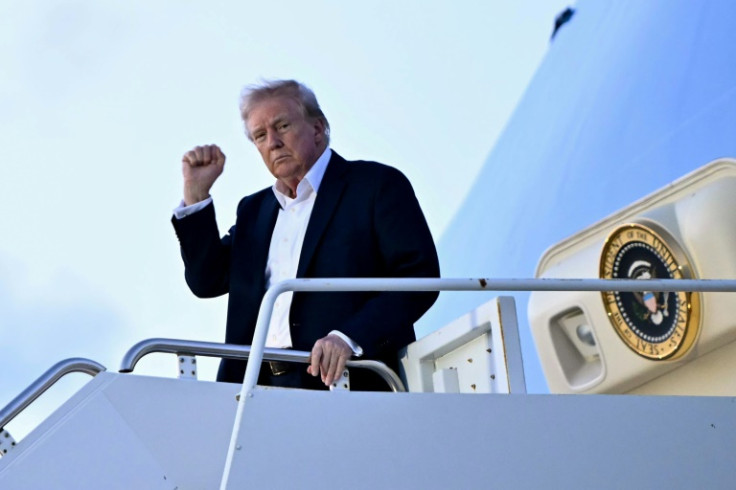
The Supreme Court announced Thursday it will hear arguments on May 15 on whether the Trump administration can proceed with efforts to end automatic birthright citizenship, a move that drew immediate praise from the president, who called it "an easy case to win."
Speaking to reporters in the Oval Office, President Donald Trump expressed satisfaction, saying he was "so happy" with the Court's decision. "I think the case has been so misunderstood," he pointed out.
Trump's executive order, signed shortly after he resumed office in January, sought to end birthright citizenship for children born in the U.S. who do not have at least one parent who was either a U.S. citizen or a lawful permanent resident, Associated Press reported.
However, the order has been halted nationwide by three federal district courts. Appeals courts have thus far upheld these rulings, leaving the administration's plan on hold.
The Supreme Court will review cases originally filed in Maryland, Massachusetts, and Washington state. In an unsigned order, the justices declined to immediately act on a request from the Trump administration to narrow the scope of three nationwide injunctions issued by federal judges, which have blocked his Jan. 20 executive order while the legal battle continues, Reuters reported.
In defending the policy, Trump has argued that the 14th Amendment, which grants automatic citizenship to individuals born in the U.S., was ratified shortly after the Civil War, suggesting that its original intent was "all about slavery."
"If you look at it that way, we would win that case," Trump said.
A spokesperson for the Justice Department echoed his sentiment, stating the department looked forward to presenting its case before the justices.
Trump has consistently called for stricter citizenship rules, referring to American citizenship as "a priceless and profound gift" in the executive order issued early in his latest term in office.
Focus on nationwide injunctions
In a brief order, the Supreme Court deferred action on the administration's emergency request to limit the scope of the nationwide injunctions. On May 15, the justices will hear arguments specifically on whether lower court judges had the authority to issue such sweeping rulings.
The Trump administration contended that the 14th Amendment, historically interpreted to guarantee citizenship to nearly anyone born on U.S. soil, did not apply to children of unauthorized immigrants or even those legally present on temporary visas, such as students or guest workers.
The administration's request to the court is more narrowly focused, seeking to limit the impact of lower court rulings, asking the justices to allow Trump's plan to proceed -- at least for individuals not directly involved in the lawsuits. Alternatively, it suggests the policy could remain blocked only in the 22 states that are parties to the legal challenge. New Hampshire is subject to a separate court order not addressed in the current case.
Acting Solicitor General Sarah Harris argued that the judges in those cases overstepped their authority by issuing nationwide injunctions and contended that the suing states lacked legal standing to bring the cases.
The Trump administration's plan has received support from 21 other states.
Opposition defends constitutional protections
The lawsuits, brought by 22 Democratic state attorneys general, immigrant rights groups, and individual plaintiffs, including expectant mothers, argued that Trump's order violated the 14th Amendment. Ratified in 1868, the amendment grants citizenship to all individuals born in the U.S., including those born to undocumented immigrants.
"President Trump's attempt to terminate birthright citizenship is blatantly unconstitutional, which is why every court to date has rejected his administration's filings," New Jersey Attorney General Matthew J. Platkin, who is leading one of the legal challenges, said.
Birthright citizenship "cannot be turned on or off at the whims of a single man," Platkin, a Democrat, added.
Though the emergency appeal does not directly address the validity of the order, the justices will likely find it difficult to avoid confronting that underlying question.







